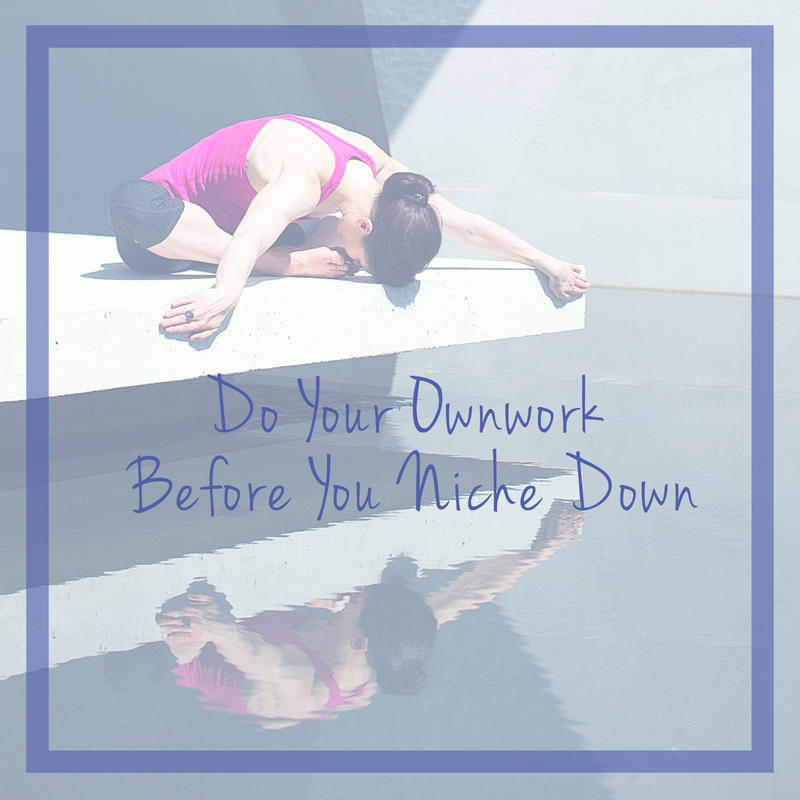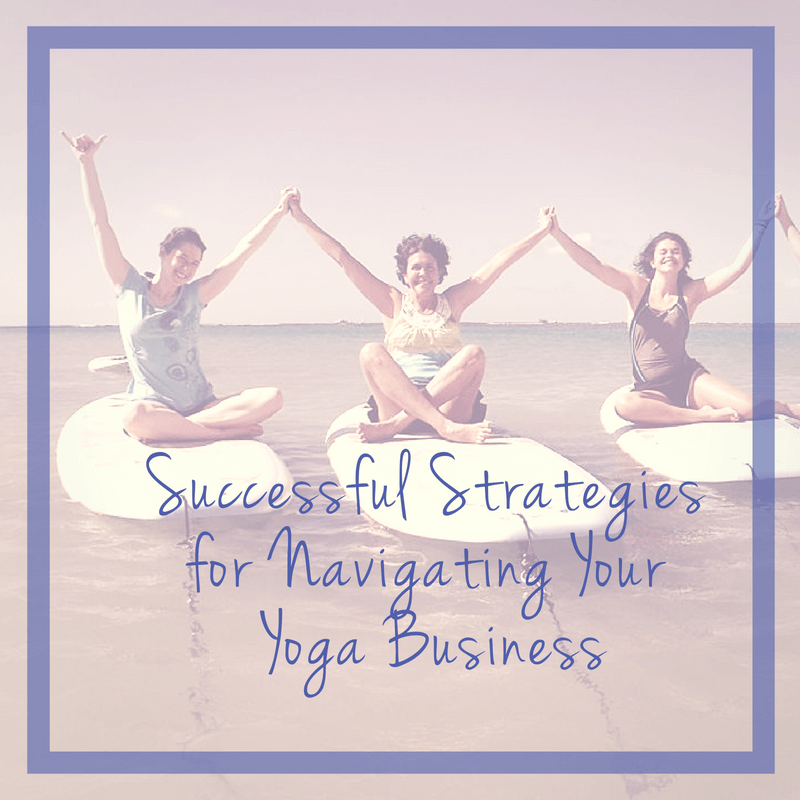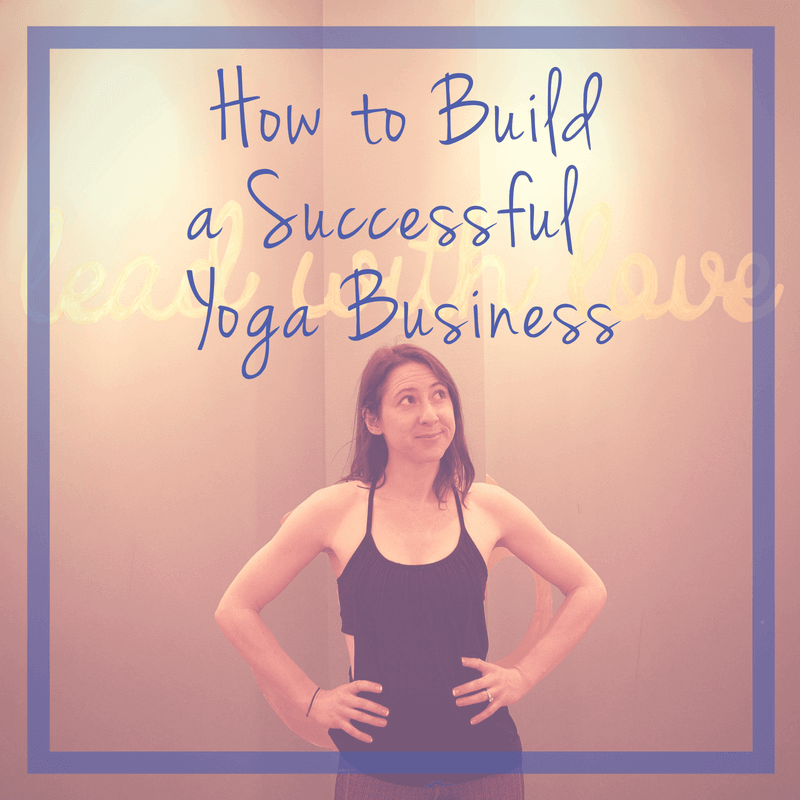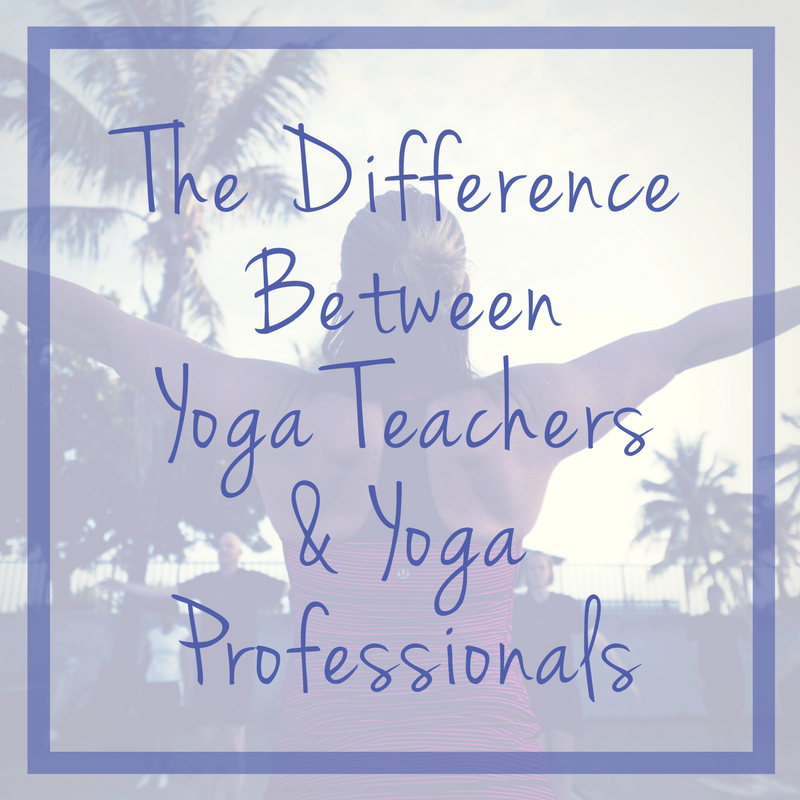Long before yoga teacher training ever existed, dedicated yoga practitioners became teachers through mentorship.
After practicing for a long period of time with one teacher, that teacher would eventually deem you “ready” and off you would go to teach your first class. You would probably teach your class based on what you remembered practicing the day before.
It was only inevitable with the commodification of yoga that practitioners with just as much passion but not quite as much discipline would begin teaching yoga classes, even opening up yoga studios, based on the practices they experienced from DVDs.
Imagine if your doctor learned how to be a doctor from watching ER or Scrubs or Grey’s Anatomy. Imagine if your lawyer learned how to practice law from watching Suits, Law & Order, or Boston Legal.
You get the point.
Because it was important that yoga teachers be “properly” trained, the Yoga Alliance stepped in to create teaching standards by which teachers could organize trainings and the deep wisdom of yoga could be passed on.
Thus, yoga teacher training was officially born.
One-on-one learning
There may have been teachers and yoga schools running formal training programs long before the Yoga Alliance came around and standardized the process, but it wasn’t until the standards became a thing that teacher training became a thing.
It wasn’t long before it was common to be in a room full of 50 other people learning how to teach yoga.
The thing is, when you look back at the master teachers — Vivekananda, Krishnamacharya, Yogananda, and many others — they all had direct contact with the students they trained to pass on the wisdom of their respective lineages, most likely because this is how they learned from their teachers.
The teacher-student relationship in yoga has always been personal.
How then can we expect to take a teacher training with 10, 15, 30 (or more) people, and expect to get the same one-on-one attention?
Very few teacher training programs these days incorporate direct mentorship with the lead teacher trainer. It is this individual time that often proves most beneficial to the student.
This mentorship time helps students further digest information presented in lecture, review homework assignments, and ensure understanding of required readings. Mentorship time promotes a deeper understanding of the practice of yoga and, in turn, offers enhanced opportunities for teacher development.
If the world doesn’t need more yoga teachers, it can certainly use better, more well-trained teachers.
You’re on your own after teacher training
What happened when you graduated from your teacher training program?
Did you maintain frequent contact with your teachers to continue learning beyond taking classes with them? Are your teachers available to answer your questions in a timely manner and in depth?
For some of us yes, but the sad reality is that this is not the case for many recently graduated yoga teachers. Since yoga teacher trainers are either hustling to keep afloat in their yoga teaching business or have other part- or full-time work to attend to, trainers hardly have the extra time to follow up with their trainees, no matter how much they want to maintain that connection.
And this is a problem.
Based on my many conversations with full-time yoga teachers, we often don’t feel we have the support structure of a mentor to help us as issues come up in our businesses and in our teaching.
Here’s the hard part. There are plenty of programs out there that will teach you all about marketing. And there are lots of continuing education courses to help you become a better teacher. But there are very few programs out their that offer all of it, affordably, in one place.
Where do you go when you have questions?
Who do you go to when you want to become a better, more skilled teacher? Who is holding you accountable to that growth and how are you measuring it?
Who do you go to when you want to become better at sequencing, cueing, learning about anatomy, finding new creative ways to transition from one pose to the next?
Who do you go to when you have questions about creating a teaching schedule that is sustainable, marketing your classes, finding your voice, and sharing your message?
Who do you go to when you realize you need to leave a studio community?
Who do you go to when you have an experience teaching a class with a difficult student and you want advice about how to handle that situation the next time it happens.
Who do you go to when you want to learn more about yoga philosophy but you have no idea where to start or what to read first or what you’re even reading about?
Who do you go to when you want to know what the next best training to take is on your path?
Who do you go to for inspiration in your own personal practice and to keep you accountable for showing up on your own mat?
Who do you go to when you need to know what web host to use, what entity to register your business as, what insurance you need, and how to file your taxes?
Yes, we have our fellow yoga teacher friends, yoga studio owners or managers, or Facebook groups to go to for help when we need it. It’s not that there is no lack of information and support out there. But there is a lack of real connection, deep wisdom sharing, and customization.
Customized mentorship for yoga teachers
Customization is what yoga is all about! We would never teach one class and expect every. single. student. to do it the exact. same. way. That’s so 2010!
Every yoga teacher path is different; while your friend’s advice about how she builds her class is great information, it might not be the right approach for you.
For example, your best yoga teacher friend might be an extreme extrovert who loves talking to every single student who comes to class. She doesn’t even think twice about it, and she would definitely not consider it a “strategy” for building her class numbers. And yet, students keep coming back to her class. She remembers everyone’s name and is always asking about her students’ families, trips, and jobs.
You, on the other hand, self-identify as a pretty big introvert. It does not feel comfortable, natural, or easy to chat up every student about his or her most recent doctor’s appointment or yesterday’s TV schedule. When your friend tells you that the best way for you to build your class is to talk to every student and really get to know them, that’s going to be a tough sell for you. And I get it. It’s not like you don’t want to get to know your students — it’s just painfully awkward and uncomfortable and small-talk is not your strength. You, my friend, will need to figure out another way to build your class size.
There is, sadly, no magic pill, no one answer, no replicable blueprint for being a successful yoga teacher and building a sustainable business around teaching yoga. Believe me, I spent over a year trying to find that blueprint!
But there are smart, intuitive, passionate, and experienced teachers out there willing to get to know you so that they can help you find the best way forward for you.
That is customized mentorship. To have that support is the next best thing to getting handed a million bucks at the end of the year just because you rock.
What makes a good mentor
Good mentors will challenge you. They’ll cheer you on too, but they won’t just give you answers and send you on your way. They will make you work, and sometimes it might be uncomfortable.
I remember those fateful summer days in grade school a month or so before school started when I’d drive with my mom to school to stand outside the front door and look at the piece of papers taped to the glass to see who my teacher would be for the next year. (We didn’t have email back then.)
The whole ride over, I’d be hoping I’d get the “good” (read: easy) teacher.
Every year, I got the “bad” (read: hard) teacher.
But the joke was on me. The “bad” teachers were the best teachers, and I’m so grateful that they challenged me. I wouldn’t be where I am today if it weren’t for their faith in me — their faith that I could and should be pushed to work harder because I’m a capable human being. (Hint: You are too.)
Good mentors will have been in your shoes. They’ll have some experience in whatever it is they’re mentoring you about, be it teaching to a specific population, sequencing, anatomy, building class sizes, or creating online communities.
Most importantly, they’ll be happy to refer you to other teachers and specialists who know more then they do. They’ll be humble and unafraid to admit their mistakes and to tell you “I don’t know,” when they don’t. Good mentors love collaboration.
Good mentors will care about you. They’ll follow up with you, check in, congratulate you on your accomplishments, no matter how small, and be there to support you when you fail.
Oh, and also, good mentors will let you fail. Our best lessons come from failures. The difference between failing successfully and failing miserably is in how you respond to the failure. It’s so much easier to respond positively to a failure when you have someone on your side, helping you wade through the bushes. Good mentors will not give you a one-size-fits-all-solution and then blame you when it doesn’t work.
The potential for mentorship
There is so much potential for incredible mentorship in the yoga industry these days. There are so many wise and knowledgeable teachers from whom we can learn in every community.
But for mentorship to become a “thing” just like teacher training became a “thing,” these relationships must be valued by both the teacher and the student.
As yoga teachers, we have to want to play a part in elevating the quality of teaching in our profession.
As yoga students, we have to want to grow and get better and learn more, and be serious about that pursuit.
As a community, we must recognize that it’s worth the time and money to enter into these relationships.
Together, we can find creative ways to make mentorship a permanent, valued, and accessible option for all yoga teachers everywhere.
If you’re interested in being mentored, please head over to this page and sign up to start receiving free resources to help you become a better teacher and business yogi.





